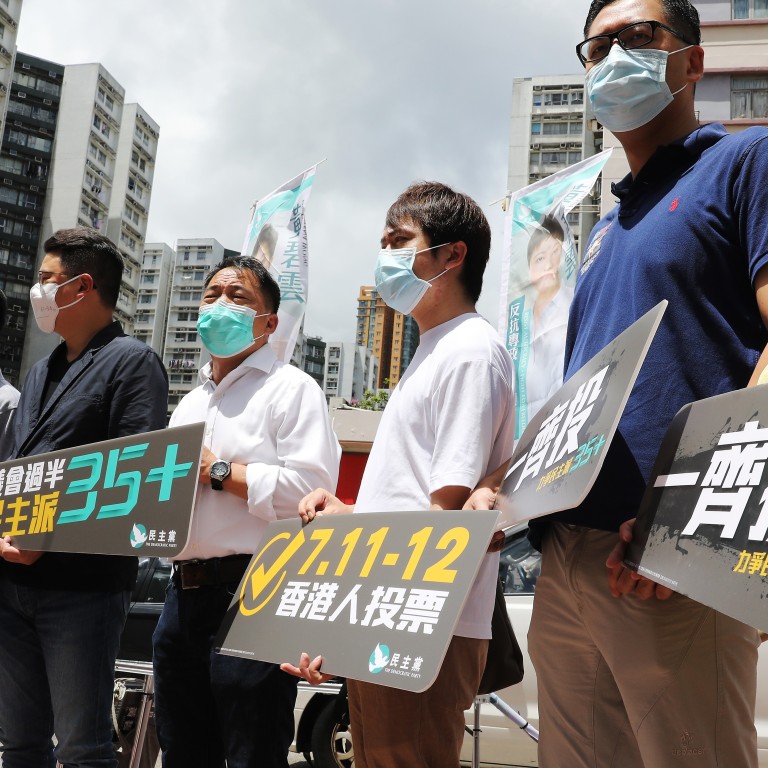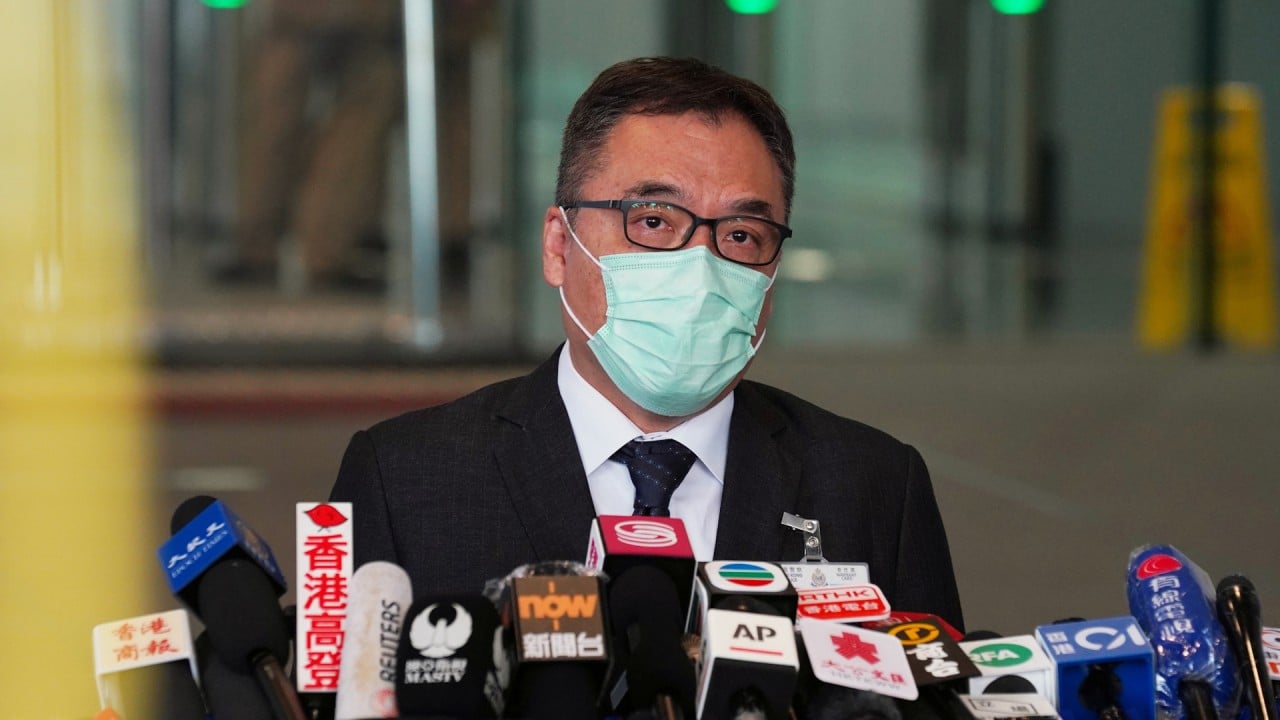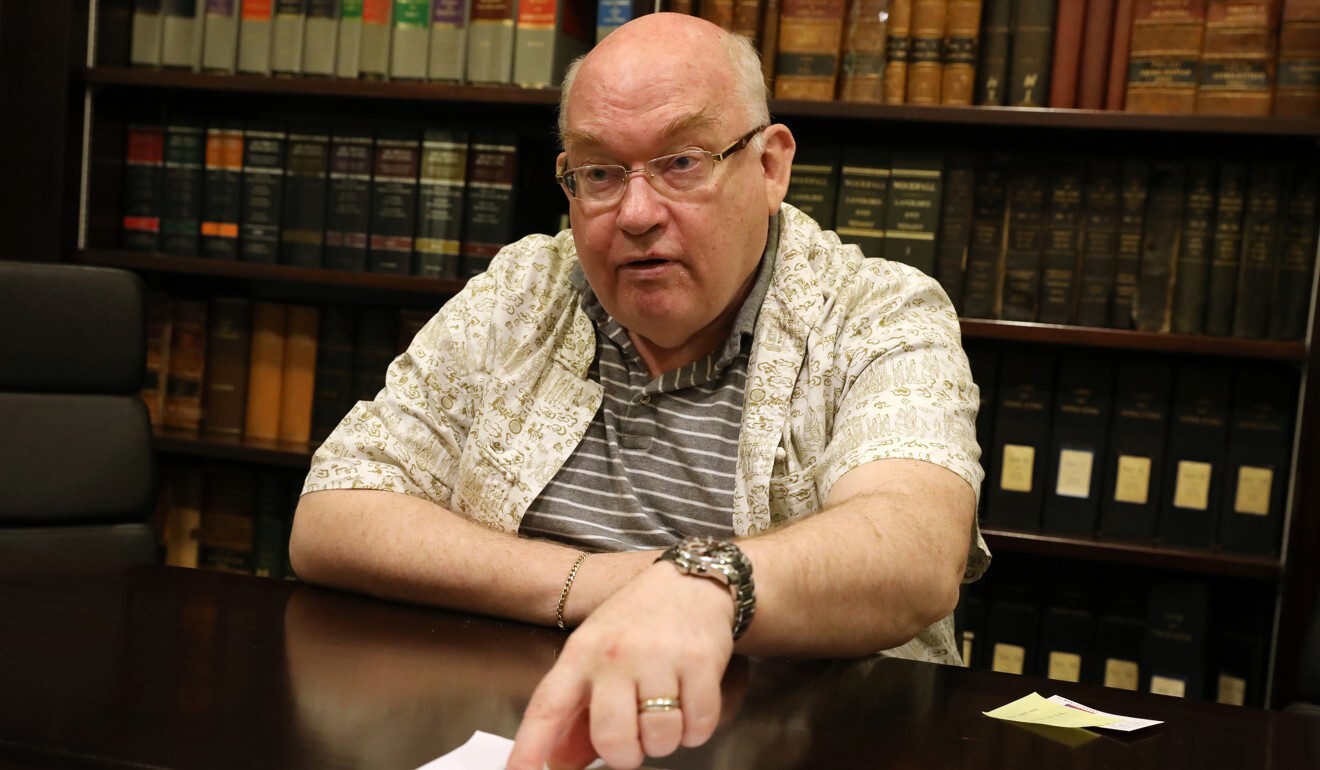
Hong Kong national security law: four big questions raised by mass arrests of 53 opposition figures
- Except for one suspect, all were released with no charges but their passports were seized, with analysts puzzled over the police move
- Observers point to extreme political sensitivity of cases and need for strong likelihood of prosecution to proceed to court
Except for one suspect, all were released on bail and barred from leaving the city. The episode had left more questions than answers, analysts said, urging the authorities to be more transparent with their decisions.
About 1,000 police officers raided multiple locations on Wednesday, arresting 53 people for allegedly staging or running in the opposition bloc’s primary run-off election last July in which more than 600,000 voters participated.

01:17
Benny Tai among Hong Kong opposition figures released by police after crackdown
But NGOs had also questioned why police targeted lesser-known candidates, such as social worker Jeffrey Andrews and Lee Chi-yung of the Association of Parents of the Severely Mentally Handicapped.
With police freezing HK$1.6 million in funds linked to the primary with no explanation given for the move, activists also lamented that it could get more difficult for the opposition to raise money for political activities.
Soon after the release of most arrestees on Friday, police said many would have to report back early next month. The activists said bail had been set at HK$30,000 and they were made to surrender their passports.
Here are some of the questions being asked:
1. Why the arrests and no charges yet?
Asked why none of them were charged, legal scholars and government advisers said they believed national security cases had to be handled with caution as a strong case for prosecution was needed amid political sensitivity.
Police also need written approval by the Department of Justice (DOJ) before proceeding with charges.
“Once the prosecution is made, the defendant will be detained and lose his personal freedom,” said Albert Chen Hung-yee, a University of Hong Kong law professor and member of the Basic Law Committee. “If people are prosecuted and the court rules that they are not guilty, the political consequences will be hard to predict. Therefore, the secretary should not prosecute anyone unless she is quite certain that the case can be won in court,” Chen warned.
Ronny Tong Ka-wah, an adviser to the chief executive in her de facto cabinet, the Executive Council, also said it would be down to the DOJ to decide on prosecution, and that it had to tread carefully before proceeding, given the concern and questions raised in the community.
Tong was referring to mixed views among legal experts over the arrests, on whether the actions of suspects had constituted an offence under the national security law.
Can Hong Kong’s opposition camp survive the crackdown?
Police said the arrests were made under Section 3 of Article 22 of the Beijing-imposed legislation, which makes it illegal for anyone to use “force or threat of force or other unlawful means” to seriously interfere in, disrupt or undermine the duties and functions of the Hong Kong government.
But some legal scholars questioned how joining primary elections or winning seats in Legco amounted to a threat of force, the use of it or any offences under the new law.
Pro-establishment heavyweight and barrister Maria Tam Wai-chu, who is also vice-chairwoman of the Basic Law Committee that advises Beijing on the city’s mini-constitution, previously said police would have to produce more evidence to build their case.
“The [arrestees] organised, planned and actively participated in a scheme to paralyse the government and Legco … What we don’t know is the ‘unlawful means’ that was being employed to commit this offence,” she said.
Legal scholar Simon Young Ngai-man, from the University of Hong Kong, said on Friday: “It is not clear to me if there is any evidence of a pact among these would-be candidates to vote against any budget that was put forward, assuming enough of them are elected. The alleged unlawful means seems rather remote to me.”

02:29
Hong Kong police arrest 53 opposition lawmakers and activists, warn of more arrests
2. Why the confiscation of passports?
Asked why suspects were required to surrender their travel documents, Young said while individuals could refuse to do so if they were not charged with an offence, police might have obtained authorisation, under the Implementation Rules of the national security law, to require a person under investigation to surrender passports.
Under those rules, police can apply for court warrants requiring suspects to surrender their travel documents to restrict them from leaving Hong Kong.
Tong argued this was because of the possibility that arrested opposition figures could abscond, especially after former Democratic Party lawmaker Ted Hui Chi-fung fled the city after he had been granted bail without his passport confiscated in late November.

But Bar Association chairman Philip Dykes, who spoke in his own capacity as a veteran human rights lawyer, questioned the grounds on which most of the arrestees’ passports were seized, when the cases had not been brought to court.
“What’s the legal power requiring a person to surrender his passport without the court being involved? Which laws are police using?” he said.
Dykes also expressed concern over police bail granted to the suspects before any prosecution.
“I’m concerned that the suspects accepted police recognisance. It is not strictly speaking bail. Bail is only dealt with by courts,” he said.
“Police bail in fact is an undertaking you give that you will turn up at the police station on another occasion when you’re called for. You’re [now] accountable to police rather than the court.”
Former director of public prosecutions Grenville Cross noted that rather than relying on the court or the implementation rules, police are empowered under Article 43(2) of the national security law to order “any person suspected of having committed an offence endangering national security to surrender travel documents, or prohibiting the person concerned from leaving” Hong Kong.
“The power of police to request a suspect who is put on bail to surrender his or her passport is new … I imagine in future the power will be invoked in all national security cases. Quite clearly, people under investigation for a national security offence may be tempted to flee, so this precaution is obviously necessary,” Cross added.
3. Why were some candidates arrested but not others if the alleged crime was taking part in the polls?
The primary election, which took place on July 11 and 12 last year, barely two weeks after the national security law came into force, aimed to whittle down the list of opposition candidates to the few who stood the best chances of contesting the Legco elections.
A total of 73 activists formed 51 tickets, with each consisting of one to several candidates. Only those leading each ticket were arrested, and not other members on the slates.
Tong believed that authorities had targeted the first-ranked candidates as they had a higher chance of winning the unofficial polls.
But Lo Kin-hei, Democratic Party chairman, who saw seven of his party colleagues arrested on Wednesday, said police were just going for a large number of members from the opposition camp.
“Social workers and social policy advocates will feel the pressure after these arrests. It also shows that the government will not listen to these people’s voices,” he said.
What sparked Hong Kong’s biggest mass arrests under national security law?
Lo was referring to the arrests of Andrews, an ethnic minority social worker, and Lee of the Association of Parents of the Severely Mentally Handicapped.
In a statement NGO Hong Kong Unison said Andrews, the group’s vice-chairman, was just trying to promote racial harmony by becoming the first ethnic minority candidate to stand for Legco elections since the city’s return to Chinese rule in 1997.
“[Andrews] was awarded … in 2016 in recognition of his dedicated service and outstanding contributions to the enhancement of racial harmony and integration,” the statement read.
“His participation in the primaries is reflective of his commitment to Hong Kong … It was not an act of subversion.”

4. What are the implications of the frozen funds?
As police had also frozen HK$1.6 million in funds linked to the unofficial polls, Lo admitted it would become more difficult for NGOs and opposition parties to survive.
“The freezing of funds was consistent with police’s strategy of using ‘money laundering’ as a weapon to suppress different means of fundraising,” he said.
Some political analysts said the arrests had a chilling effect on smaller voices of opposition, with civic groups already disbanding and others moving their servers overseas or destroying personal details of volunteers to avoid “a new wave of persecution”.

Community group Kickstart Wan Chai, with co-founder Clarisse Yeung Suet-ying among those arrested, was the first to close down, while the Hong Kong Alliance in Support of Patriotic Democratic Movements of China, organiser of the annual June 4 vigil, said it would speed up the digitising of historical documents, videos and photos of the Tiananmen Square crackdown in 1989 and move its server abroad.


